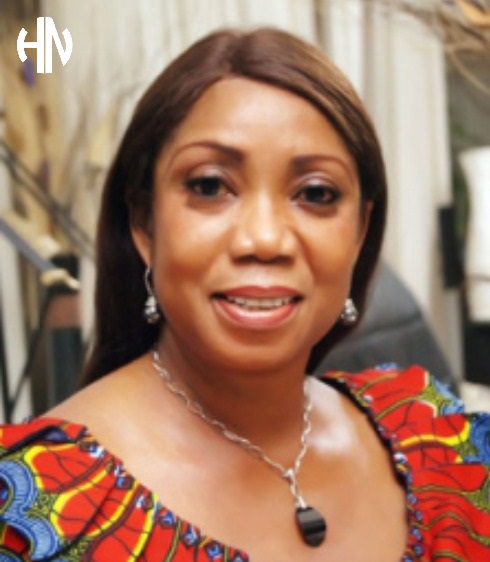Education at Crossroads: Nigeria Must Reform Its Religious Curriculum Now
Education is not only about literacy and numeracy; it is the foundation for shaping values, beliefs, and future citizens. When education is used fairly, it builds bridges across communities. But when it becomes a weapon of indoctrination, it sows division, mistrust, and strife. Nigeria today faces such a crossroad with the Federal Ministry of Education’s 9-Year Basic Education Curriculum on “Religion and National Values,” a policy document produced by the Nigerian Educational Research and Development Council (NERDC).
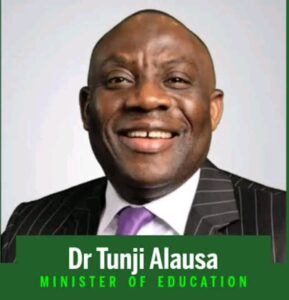
Allegations have surfaced that this curriculum contains teachings that elevate one religion while diminishing another, directly contradicting Nigeria’s constitutional principle of secularism. Specifically, references in the curriculum for Primary 1–3 (pages 17 and 46) present Islam as supreme while dismissing foundational beliefs of Christianity. Left unaddressed, such biases risk inflaming sectarian tensions in an already fragile society.
This report examines the issues at stake, the constitutional and historical context, lessons from other nations, and—most importantly—what reforms are urgently needed to ensure fairness, inclusivity, and peace.
The Controversy in the Curriculum
The current controversy focuses on two passages:
1. Page 17 – Islamic Studies (Sarah and Tahdib): Pupils are taught that Prophet Mohammed is the seal of all prophets, sent to the whole world, and that the Qur’an is the final guidance of Allah to mankind.
2. Page 46 – Same curriculum: Pupils are taught that Jesus (Prophet Isa) is not the Son of God and that He was never crucified.
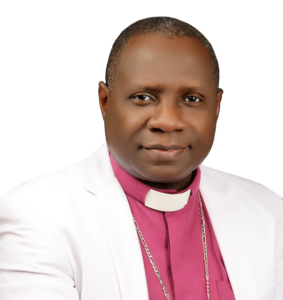
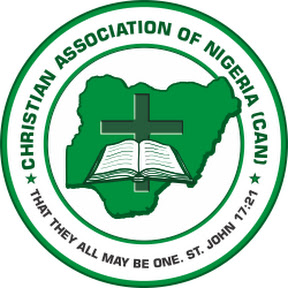
From a Christian perspective, these statements are deeply offensive and undermine the essence of their faith. The crucifixion and divine sonship of Jesus are non-negotiable doctrines in Christianity. To teach otherwise in a compulsory school curriculum is not only provocative but also a direct assault on Christian identity.
Although NERDC claims that Christian Religious Knowledge (CRK) and Islamic Studies are to be taught separately, evidence shows that in many Northern states CRK teachers are deliberately not employed. This forces Christian pupils to sit through Islamic instruction, creating an environment of coercion and indoctrination.
Constitutional Safeguards Being Ignored
The Nigerian Constitution clearly rejects religious domination:
Section 10: “The Government of the Federation or of a State shall not adopt any religion as State Religion.”
Section 38(1): “Every person shall be entitled to freedom of thought, conscience and religion…including freedom…to manifest and propagate his religion or belief in worship, teaching, practice and observance.”
By including derogatory teachings about Jesus Christ in a compulsory curriculum, the state effectively privileges one religion over others. In practice, when CRK is unavailable in some states, Christian pupils are compelled to sit under Islamic indoctrination. This is a constitutional violation and a betrayal of Nigeria’s secular foundation.
The Missing Third Voice: Nigeria’s Traditional Religions
One striking omission in this entire debate is Nigeria’s indigenous faiths—the traditional religions that shaped morality and spirituality before Islam and Christianity arrived. Colonialism and missionary activity demonized these faiths, branding them “pagan” or “diabolical.” But history tells a different story.
Ifa (Yoruba religion) is today recognized globally as an intangible heritage of humanity by UNESCO. Its corpus of wisdom (the Odu Ifa) contains teachings on justice, integrity, communal responsibility, and respect for nature.
Proverbs such as “Iwa l’ewa” (character is beauty) highlight the Yoruba understanding that good moral character outweighs outward appearances.
In Igbo cosmology, Odinani emphasizes truth (Eziokwu bu ndu – Truth is life).
Across the Niger Delta, ancestral traditions stress justice and retribution for wrongdoing.

Ironically, while Ifa priests are respected in academic circles abroad and Ifa philosophy is studied in universities in the U.S. and Brazil, Nigeria itself marginalizes this heritage in its classrooms.
As Nobel Laureate Wole Soyinka has repeatedly argued, suppressing indigenous faiths weakens cultural identity and leaves a vacuum often exploited by extremists. Former President Olusegun Obasanjo himself has acknowledged participating in traditional rites alongside Christianity, recognizing their cultural significance.
A river that forgets its source dries up. Nigeria cannot continue to erase its indigenous faiths while struggling with inter-religious conflict. Inclusion of traditional religion in curricula is not only fair but essential for preserving heritage and strengthening moral values.
Shared Moral Values Across Religions
All major religions practiced in Nigeria—Christianity, Islam, and traditional religions—contain moral codes that shape good citizens. The curriculum should emphasize these unifying principles rather than sow division.
Christianity: The Bible teaches love, honesty, and humility. “Train up a child in the way he should go, and when he is old he will not depart from it” (Proverbs 22:6). Jesus summarized morality as: “Love your neighbor as yourself” (Mark 12:31).
Islam: The Qur’an emphasizes justice, compassion, and respect. “Indeed, Allah commands justice, good conduct, and giving to relatives and forbids immorality, bad conduct, and oppression” (Qur’an 16:90).
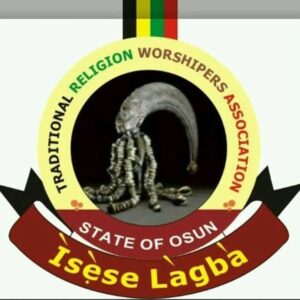
Ifa Religion: The Odu Ifa stresses good character and truth. One verse declares: “Iwa rere l’eso eniyan” (Good character is the ornament of a person).
These teachings converge on the same truth: society flourishes when children are raised to be truthful, compassionate, respectful, and just. Instead of amplifying doctrinal differences, Nigeria’s curriculum should highlight these shared values.
Lessons from Other Nations
Indonesia (Muslim-majority): Ensures every child is taught their religion by teachers of the same faith. No pupil is forced to learn another faith.
India (multi-religious): Offers optional religious studies but emphasizes civic and moral education as a unifying subject.
Ghana (Christian-majority but secular): Introduces moral and civic education rooted in universal values, leaving faith-based teaching to optional streams.
Nigeria must adopt similar safeguards. Compulsory religious instruction without equal representation only fuels resentment. Moral and civic education, highlighting honesty, respect, unity, and justice, should be the common foundation for all pupils.
Importance of Religious Leaders Involvement.
The present crisis stems partly from the insular design of the curriculum. If the curriculum had been vetted by leaders of all faiths—Christian, Muslim, and Traditional—offensive or biased content would never have passed.
Proposed model:
Establish a National Religious Curriculum Review Council with representatives from CAN, the Supreme Council for Islamic Affairs, and the Association of Traditional Religion Practitioners.
The Council would vet all religious content for fairness, doctrinal integrity, and constitutional compliance.
This inclusive approach would foster trust, prevent bias, and build ownership across communities.
Recommendations
1. Immediate Removal of Offensive Content: Expunge statements denying Christian doctrines or claiming religious supremacy.
2. Faith-Specific Instruction: Pupils should be taught only the religion of their choice (CRK, Islamic Studies, or Traditional Religion Studies).
3. Equal Teacher Recruitment: Federal and state governments must employ qualified teachers for all recognized faiths. Refusal to employ CRK teachers is systemic discrimination.
4. Optional Religious Studies: Where equal teacher provision cannot be guaranteed, religious studies should not be compulsory.
5. Curriculum Review Council: Religious leaders from Christianity, Islam, and traditional faiths should be mandated to co-create and review the curriculum.
6. Emphasis on Moral and Civic Education: The unifying subject across all pupils should be civic and moral education, grounded in shared values across religions.
7. Inclusion of Traditional Religion: Indigenous faiths like Ifa, Odinani, and others must be respected and integrated to preserve cultural heritage.
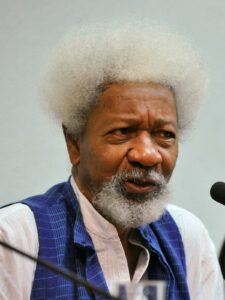
Conclusion
Nigeria stands at a delicate point in its history. Sectarian violence, terrorism, and distrust already plague the nation. To allow a biased curriculum to shape young minds is to plant seeds of future conflict.
The Federal Government must urgently act: respect constitutional rights, expunge offensive content, and design a truly inclusive curriculum that reflects all faiths—Christianity, Islam, and traditional religions alike.
Education should unite, not divide. If Nigeria can embrace its diversity and highlight shared moral values, it can raise a generation that values truth, justice, and peace. As the Qur’an teaches, “Do not let the hatred of a people prevent you from being just” (Qur’an 5:8). As the Bible affirms, “Blessed are the peacemakers, for they will be called children of God” (Matthew 5:9). And as Ifa wisdom reminds us, “Good character is the guardian of destiny.”
The path forward is clear: inclusivity, fairness, and justice. Anything less is a betrayal of Nigeria’s children and its future.
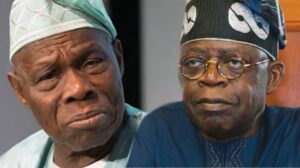
“Religious studies must be made compulsory in all Nigerian schools—at every level. At a time when our society is drowning in moral decadence, drug abuse, and alcohol misuse among students, religion remains the surest tool to anchor the next generation. Religion is not about dogma alone; it is a subtle but powerful force for character formation. It shapes conscience, curbs excesses, and provides a safety net in an age when the internet floods our children with foreign practices—such as transgenderism and moral confusion—that are alien to African culture.
By grounding our young people in religious and moral instruction, we equip them with the strength to resist destructive trends while nurturing values like honesty, respect, and responsibility. This is how we can raise emotionally stable youths, capable of self-discipline and self-development. In turn, these youths will become the principled leaders Nigeria desperately needs. If we fail to act now, we risk losing an entire generation to digital excess and imported immorality. Religious studies in schools are not optional—they are the foundation for building a great nation.”
Princess G. A. Adebajo-Fraser MFR. Founder, The National Patriots.

